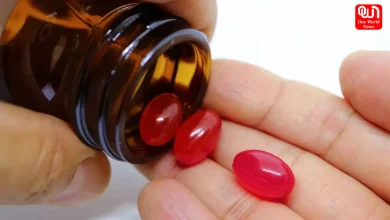Damaging effects of Chai-Starting your Day with Chai ki Chuski, Isn’t a good idea!

Learn how to balance your tea and what can reduce the damaging effects of Chai.
Highlights:
- Myths related to Chai
- How to balance tea?
Damaging effects of Chai: Tea or Chai is not just a refreshing drink; it is an emotion for many. However, considering the additive and stimulating nature of tea. Let alone quitting, even the thought of cutting it down is farfetched for most people.
Therefore, here we will discuss some of the most practical ways to reduce the damaging effects of Chai.
The health benefits of your food depend on at what time you consume it. Something as healthy as water if gulped at the wrong time can hinder the digestion process. Say just after the meal.
Vice-versa, if we avoid consuming tea at the wrong time its negative effects can significantly be reduced.
Myths related to Chai
Starting the day with Chai ki chuski
Not really! Bed tea or having tea after waking up is a worse time to do so. After a night’s sleep, our brain and body are already dehydrated. And drinking tea can, which is a diuretic, sucks up even the little water, making us feel severely dehydrated and lethargic.

Tea is acidic; therefore, consuming it on an empty stomach disrupts the metabolism. It also affects the teeth’ enamel.
Moreover, we know the damaging effects of chai and still cannot think of starting our day without chai. If you attribute tea to your regular bowel movements, then a glass of hot milk at night and warm water in the morning do the job even better.
How about having tea after a meal?
This again is not an ideal time as it hinders the absorption of nutrients, making your body deficient in them. Most meals include salt in it. Therefore, a combination of milk and salt goes wrong. It produces toxins, which can result in skin problems like Eczema, rashes, and hives.
This means, no chai and pakoda!.
What is the right time to consume tea?
The best time to consume tea is about two to three hours after breakfast or lunch.
Tea, apart from being stimulating, is severely dry and heated. This is why Ayurveda is recommended as a medicine to relieve colds and coughs. If your body is dry, daily consumption of tea is likely to cause problems like hair fall or PCOD.
Read More- Chai Story Cafe Review: Every ‘Charcha’ in India is incomplete without a perfect Chai
How to balance tea? #NoChaiLoverHurted
Adding milk to tea reduces the heating and drying properties of tea. The more milk added the less drying and heating it would be. Therefore, do not fall for the fad of black tea even green tea is a less fermented version of black tea should be avoided.

Seeing the negative effects of tea and coffee even in western countries, it is fast becoming a common practice to add coconut oil, clarified butter to the coffee. This beats its drying and heating effect to some extent.
Read more- 10 Excuses That Every ‘Chai Lover’ Gives To Have a Cup of Tea
Balancing tea with spices
Relatively cool spices like fennel seeds, licorice, cardamom, are best. A small quantity of Arjun bark, an herb with a highly alkaline, natural heat tonic should be used while making tea. It will not alter the taste much but will balance the acidic impact of tea.
The more the tea is boiled, the more tannin it releases?
Some people also prefer to drink tea at a stall as the chai wale bhaiya boils the tea for a long time. A smart way to reduce its damaging effect is to boil it the least.
Dip a teabag
Use a dip tea bag after boiling milk and water with your favorite spices.
If you are not a lover of dip tea then try this recipe.
Read More- I am in a relationship with ‘Hot Chai’ : 7 things you’ll relate to if Chai is your BAE
Ek Special chai
To make 1 cup of tea add about a half cup of water. Put your favourite balancing herbs and spices. Once the water is boiled, turn off the gas and add tea to it. After mixing, cover it and let it stay for 2 min. This will dissociate colour and properties appropriately. Strain this concoction in a cup and add hoe milk, mishri powder, and your chai is ready.
The obvious way to reduce the damaging effects of chai is to consume it less often.







